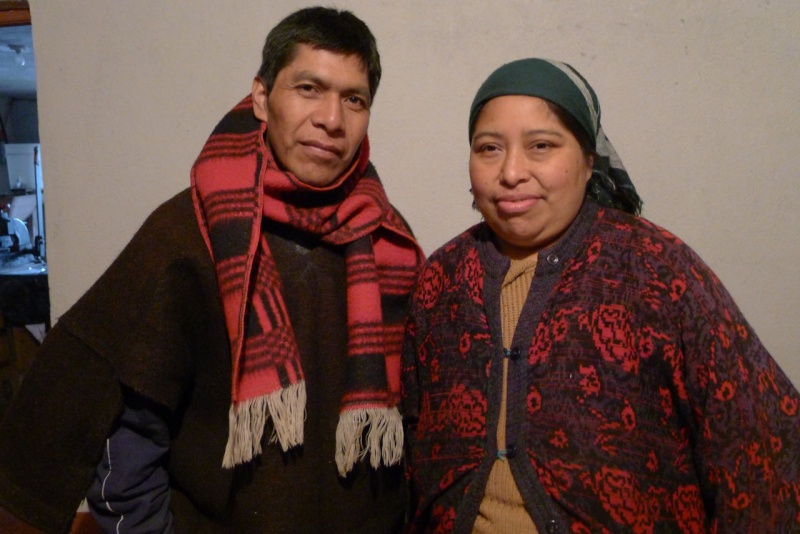 Whilst a lot has happened in the past few days – secret meetings for MSPs, the liquidation of the UK’s largest opencast operator – a picture of the deal that Fergus Ewing and Russel Griggs are trying to strike to save the opencast industry is increasingly coming to light. Announcements of a new trust for restoration make clear our suspicions that there isn’t anywhere near enough money for restoration, or even the will to use any of it. Rumblings from the Scottish Government and mining companies such as Hargreves indicate that potentially profitable mines will be sold, whilst spent ones lie unrestored and forgotten. The question is: what deal will be struck that will allow other mining companies to operate these mines profitably? And more importantly in the grand scheme of things, what lengths will this SNP government go to save one of the most despised companies in the central belt?
Whilst a lot has happened in the past few days – secret meetings for MSPs, the liquidation of the UK’s largest opencast operator – a picture of the deal that Fergus Ewing and Russel Griggs are trying to strike to save the opencast industry is increasingly coming to light. Announcements of a new trust for restoration make clear our suspicions that there isn’t anywhere near enough money for restoration, or even the will to use any of it. Rumblings from the Scottish Government and mining companies such as Hargreves indicate that potentially profitable mines will be sold, whilst spent ones lie unrestored and forgotten. The question is: what deal will be struck that will allow other mining companies to operate these mines profitably? And more importantly in the grand scheme of things, what lengths will this SNP government go to save one of the most despised companies in the central belt?
We don’t need another trust – restoration bonds and more broken promises
Something funny has happened since Scottish Coal announced they’d gone belly up – a new Trust to restore opencast sites materialised seemingly out of nowhere. Ewing and Griggs must have been thinking on their feet, because there was no mention whatsoever of a new trust at the “private” briefing to MSPs on the future of the coal industry last Wednesday, 17th April. Surely that was the opportune moment to announce the new plans? Obviously, the briefing was a charade. But what else were they keeping from MSPs and therefore the rest of us?
Questions need answering about this new trust: Where will the money come from? Which sites will be restored and when will restoration start? Will communities have any control over it? But the biggest of all: what about the bonds that were in place for each site? Opencasts gain planning permission on the condition that (and this is bound by a legal agreement) sites will be fully restored afterwards. Surely therefore there’s insurance money waiting to be accessed. Bonds can be called in either by the local authority, or by the developer in the instance that they go bust. Surely now is exactly the time that they should be called in, and if they’re not, then was it all a hoax in the first place?
The announcement of a new trust reveals other truths too. The insurance companies responsible for the bonds apparently consider them high-risk now that the mining companies have gone under, and won’t issue any more bonds. Therefore, for mining operations to resume in the future, a new system for restoration needs to be created. This new trust isn’t some benevolent act to help the environment or give communities what they want, it’s about covering the backs of the mining companies in the future, and just another dirty trick.
Fergus Ewing had this to say: “We have been working closely with the key stakeholders over the past six months to address the issues facing the coal industry in Scotland and we share the concerns raised by local communities around the responsible restoration of open cast coal sites.” We’d like to know who these key stakeholders are, and why communities living next to sites and ultimately bearing all the negative impacts of them aren’t considered “key stakeholders”.
He also said: “I am, therefore, pleased to announce that we are setting up a new trust to help facilitate the restoration of old open cast coal mines across Scotland.” Yes, but what about the bonds, and the fact that they were a condition of approval for every single mine application?
He then said: “…the restoration process itself is expected, over time, to create hundreds of jobs across the country – as well as restoring the local environment.” Well we wonder where he got that idea from.
Last minute extensions
Scottish Coal bosses were up to their usual tricks right up until the last minute. At two sites in particular, Mainshill in South Lanarkshire and St Ninnians in Fife, Scottish Coal applied for wee extensions by extending excavation areas slightly and into bits not mentioned in original applications. The tonnage in both cases was 70,000. Mainshill was all but exhausted of its reserve, and St Ninnians was finished apart from the consented extension. These tiny extensions aren’t worth another mining company buying the site, but are worth at least a year in terms of restoration commitments. With these extensions the sites aren’t finished any more, so there’s no requirement to begin restoration until the extensions are worked. Smooth. Looking at the state that Mainshill and St Ninnians are currently in one wonders whether they’ll ever get restored.
Worse still, the local authorities must have known that Scottish Coal wouldn’t survive, as they’d supposedly been involved in the negotiations for months now. What local authority would accept an application that they knew would deliberately delay restoration obligations? Ah wait – local authorities that have been colluding with Scottish Coal since day one would do that.
The future for opencast sites
And then there’s the really massive holes in the ground, such as at Broken Cross, in South Lanarkshire. Whilst it might be worthwhile for another company to buy the site – there’s at least 2 million tonnes of coal left and most of the earth moving has been done – there’s no way that the pits at Broken Cross will get filled in with trust money or bond money, if it even exists that is. What do we think will happen to Broken Cross? Landfill site – the taxes will generate income to eventually restore once the hole has been filled in with rubbish, and South Lanarkshire has a solution to its waste problems. This could very well be the fate of most opencast sites, and a final injustice imposed on near-by communities.
Who is this Griggs character anyway?
Chair of the “Regulatory Review Group”, and chair of the new Restoration Trust apparently. He’s the go-to guy for deregulating industry. He’s also refused to meet with community members (so much for “representing each community”). Griggs said: “I am grateful for the support and constructive engagement I have had from local councils, landowners and the coal operators over the last few months in developing the new Trust. I look forward to working with them to launch the Trust and be ready to help with a fresh approach to restoring old mines.” Here he admits that they’ve been cooking up these new plans for months, but still not engaged with communities, and didn’t think it appropriate to mention this at his briefing to MSPs.
The scandal here is that a “fresh approach” and “new trust” is needed to restore old mines. How long have they known that existing measures wouldn’t be sufficient? Did they not think it important to mention to communities that, “by the way, you know the promises of restoration? Well, they’re not going to happen”. This means that either the bonds were never real or sufficient in the first place, or that local authorities have been failing in their obligations to monitor restoration progress. More likely though, it means both, and that we’ve been duped by the mining companies, local authorities and government for some time.
Put your money where your mouth is: call in the bonds
Maybe this is just flogging a dead horse now, but surely, surely some effort should be made to call in these restoration bonds. No one has even mentioned it! There must be at least a few of them that could make some money available? In theory there’s millions in them. Surely then, the equitable thing to do is to keep as many of the opencast workers on as possible to see the restoration of the sites, or at least as much as the finance will allow. The fact that no moves are being made to see to it that this is what happens just shows that there’s a bigger and worse announcement still to come, about a deal being struck between the Scottish Government, local authorities and whichever mining companies have their eyes on Scotland’s opencast sites.





 https://fbexternal-a.akamaihd.net/safe_image.php?d=AQArEcS98ERrqV8v&w=90&h=90&url=https%3A%2F%2Fwww.assemblywales.org%2Fgethome%2Fe-petitions%2F2011logo.gif&cfs=1);
https://fbexternal-a.akamaihd.net/safe_image.php?d=AQArEcS98ERrqV8v&w=90&h=90&url=https%3A%2F%2Fwww.assemblywales.org%2Fgethome%2Fe-petitions%2F2011logo.gif&cfs=1);